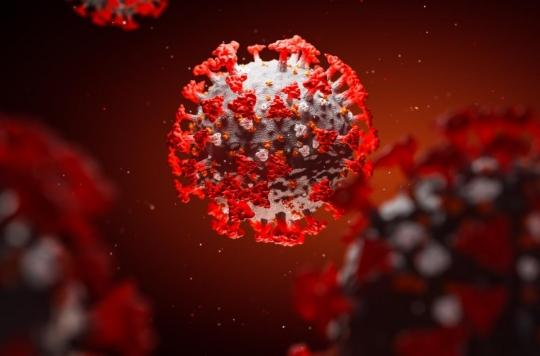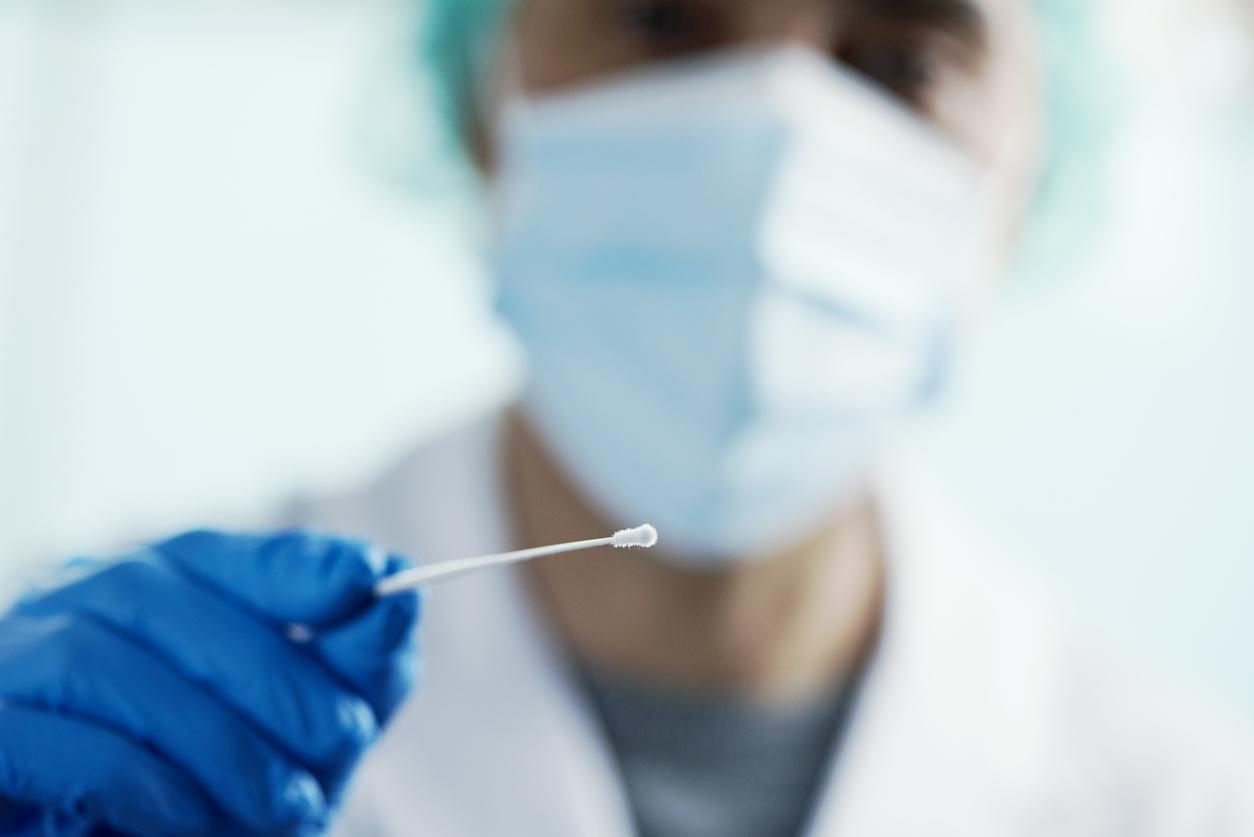The virus locates a small element, called neuropilin-1, on the surface of human cells and then attaches itself to it to multiply.

Scientists had previously identified the role of a protein in the infection of human cells by SARS-CoV-2: spike. In new research, published in the journal Science, a team of researchers explains that they have discovered another fundamental element in understanding Covid-19. They found that a sequence of amino acids, called neuropilin-1, makes it easier for the virus to infect us.
A protein already identified
The Spike protein is present on the surface of SARS-CoV-2. It allows it to enter human cells. But to achieve this, it must associate with receptors present on human cells. Studies conducted on the virus have shown that the Spike protein relies in particular on the receptor called ACE2 to “angiotensin 2 converting enzyme“. When the two elements are associated, the virus can enter the cell and then reproduce.
Allow the virus to infect other cells
In this new research, scientists have found that Spike is able to recognize and attach itself to another element on the surface of cells: neuropilin-1. This amino acid sequence will help the virus to replicate in the body, because it is present on a variety of human cells and not only on those of the respiratory system. This could explain why the new coronavirus attacks different human organs. “The introduction of a small sequence into the S protein caused the virus not only to become much better able to infect human cells via neuropilin 1, but also to recognize a wider spectrum of cells, making it likely more pathogenic”explains Étienne Decroly to Figaro.
A therapeutic path
This better understanding of the virus and how it infects us is essential for developing a treatment. The researchers tested several drugs in an in-vitro model. Monoclonal antibodies are effective: they make it possible to suppress the interaction between Spike and neuropilin-1. For them, this type of treatment could help decrease the ability of SARS-CoV-2 to infect cells. Finding a vaccine and a treatment are fundamental issues in the fight against the new coronavirus. Covid-19 has already caused more than 1.3 million deaths worldwide, including more than 42,500 in France.
Reflecting on two recent Science studies that revealed NRP1 promotes #SARS-CoV-2 entry to human cells, Margaret Kielian (@EinsteinMed) notes that questions remain, including: Does NRP1 similarly help to promote SARS-CoV-2 dissemination and spread? https://t.co/gsGUIXcVWj pic.twitter.com/24J4ebU1BB
— Science Magazine (@ScienceMagazine) November 13, 2020
.


















